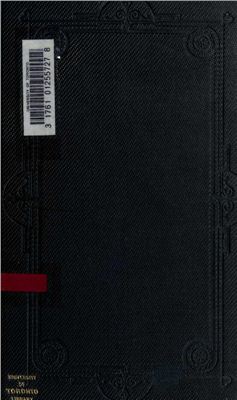Douglas: Manx Society, 1859. - LXVI + 92 p.
(reprinted in 1870)
The Manx Grammar, like the language itself, was fast hastening to decay. The original and only edition had become extremely scarce; insomuch that a copy could with difficulty be found from which to re-edit the work. At this crisis The Manx Society opportunely intervened for its preservation. The Society was formed in 1858, " for the publication of National Documents of the Isle of Man." Among the first works to which it tued its attention was Dr. Kelly's Manx Grammar, which it deemed deserving of a place among its early publications. In the restoration of this book, the Society acknowledges its obligations to a lady, a warm friend of the Island and a relative of the deceased author, for the generous donation of half the cost of the impression.
Besides the Grammar, Dr. Kelly had prepared two works of great labour, and, in a philological point of view, great value,— a Manx and English Dictionary, and a Triglot Dictionary of Manx, Gaelic, and Irish, based upon English. These works are still lying in manuscript, but complete, and ready for the press.
The Society considers the publication of these too heavy an undertaking for its present funds; but it is not without hope that it may at some future, perhaps not distant, time be able to aid in giving them to the world, and that the present publication may open the way to such a result.
This reprint of the Grammar is an accurate transcript of the original work, with corrections only of errors of the press and of some obvious inaccuracies of the pen. The old plan of making an English Grammar was to reduce the structure of the language to a rigid conformity to Latin and Greek, in the number and names of cases, and of moods and tenses. In Manx the same thing was thought imperative. The mode rule is, to have just as many cases, and as many moods and tenses, as there are actual variations of the words, without the admission of prepositions or of auxiliary verbs. To this rule the laws of grammar seem to require the Manx, as well as the English, to be conformed. As, however, the adoption of such a principle in the present instance would involve the rearrangement, to a considerable extent, of the Grammar, it is thought advisable not to attempt the change, but to give the work in its original integrity. Dr. Kelly's Grammar thus presented, especially viewed as an original production, unaided by any pre-existent grammar, cannot fail to strike the intelligent reader as reflecting the highest credit on the author's industry and ingenuity.
(reprinted in 1870)
The Manx Grammar, like the language itself, was fast hastening to decay. The original and only edition had become extremely scarce; insomuch that a copy could with difficulty be found from which to re-edit the work. At this crisis The Manx Society opportunely intervened for its preservation. The Society was formed in 1858, " for the publication of National Documents of the Isle of Man." Among the first works to which it tued its attention was Dr. Kelly's Manx Grammar, which it deemed deserving of a place among its early publications. In the restoration of this book, the Society acknowledges its obligations to a lady, a warm friend of the Island and a relative of the deceased author, for the generous donation of half the cost of the impression.
Besides the Grammar, Dr. Kelly had prepared two works of great labour, and, in a philological point of view, great value,— a Manx and English Dictionary, and a Triglot Dictionary of Manx, Gaelic, and Irish, based upon English. These works are still lying in manuscript, but complete, and ready for the press.
The Society considers the publication of these too heavy an undertaking for its present funds; but it is not without hope that it may at some future, perhaps not distant, time be able to aid in giving them to the world, and that the present publication may open the way to such a result.
This reprint of the Grammar is an accurate transcript of the original work, with corrections only of errors of the press and of some obvious inaccuracies of the pen. The old plan of making an English Grammar was to reduce the structure of the language to a rigid conformity to Latin and Greek, in the number and names of cases, and of moods and tenses. In Manx the same thing was thought imperative. The mode rule is, to have just as many cases, and as many moods and tenses, as there are actual variations of the words, without the admission of prepositions or of auxiliary verbs. To this rule the laws of grammar seem to require the Manx, as well as the English, to be conformed. As, however, the adoption of such a principle in the present instance would involve the rearrangement, to a considerable extent, of the Grammar, it is thought advisable not to attempt the change, but to give the work in its original integrity. Dr. Kelly's Grammar thus presented, especially viewed as an original production, unaided by any pre-existent grammar, cannot fail to strike the intelligent reader as reflecting the highest credit on the author's industry and ingenuity.

